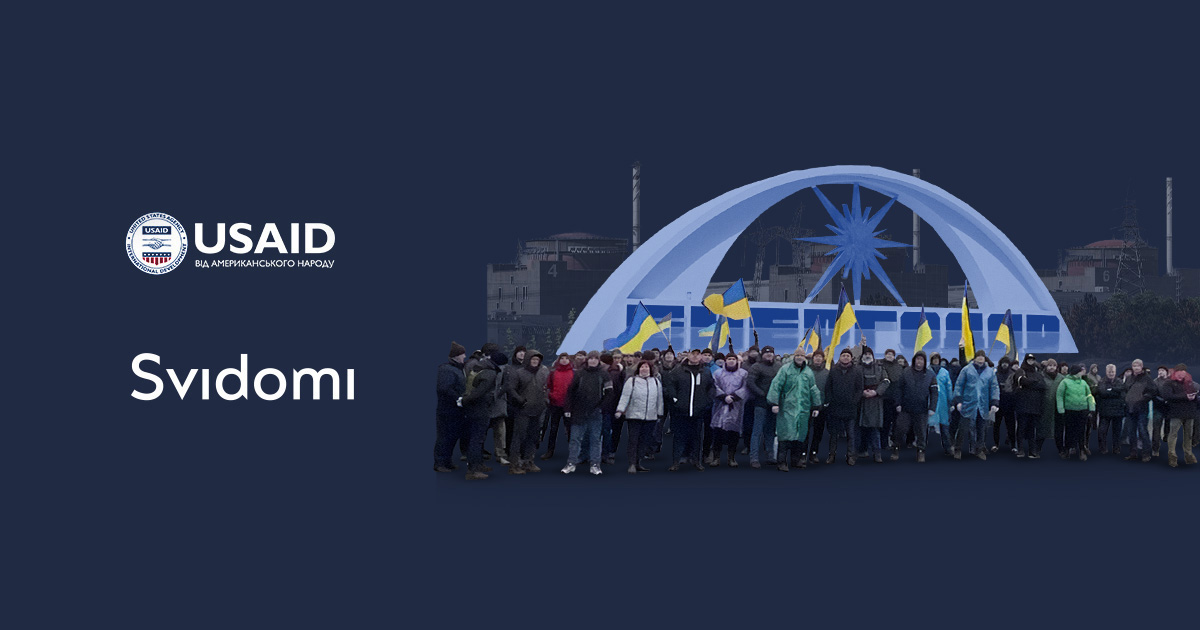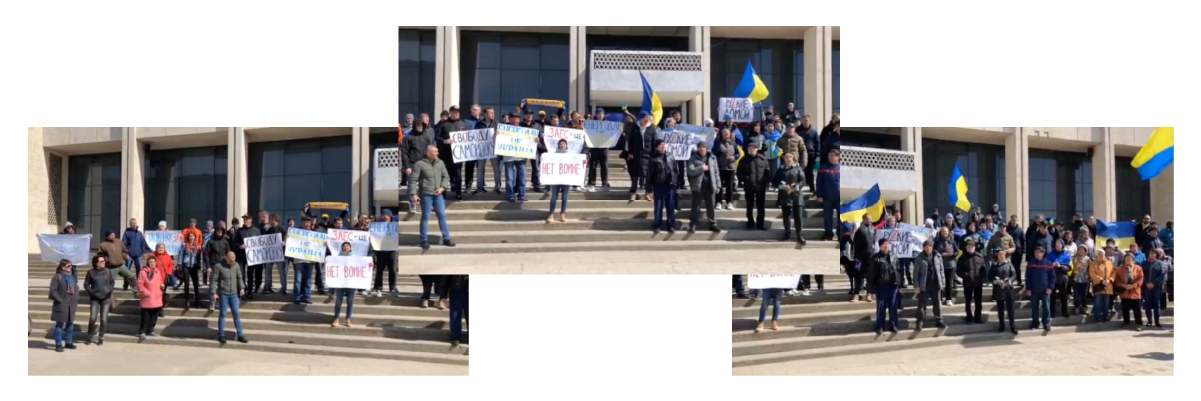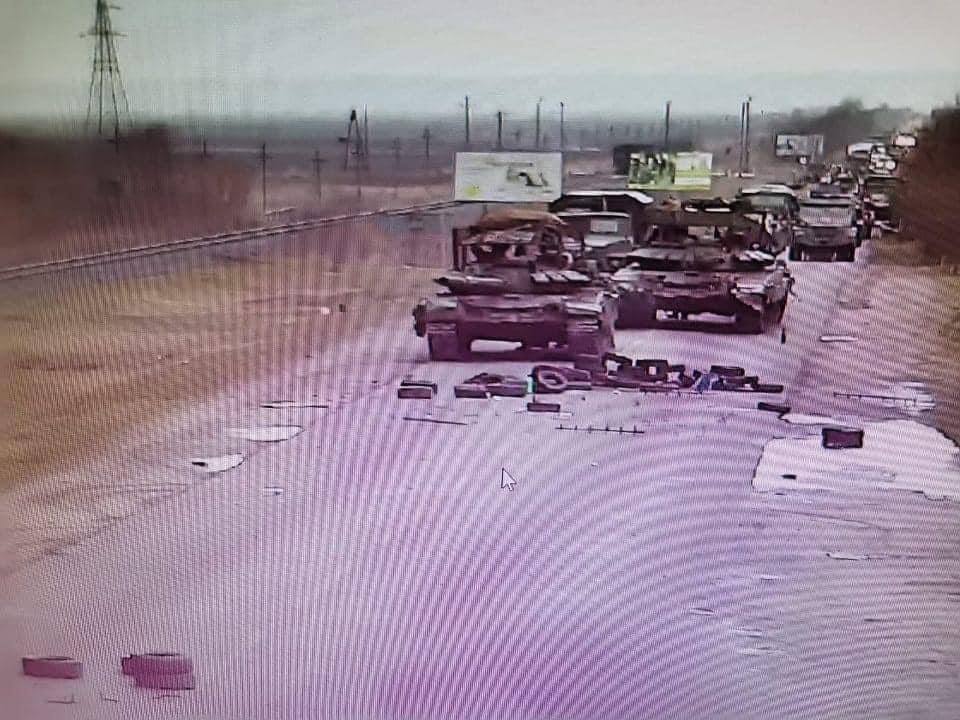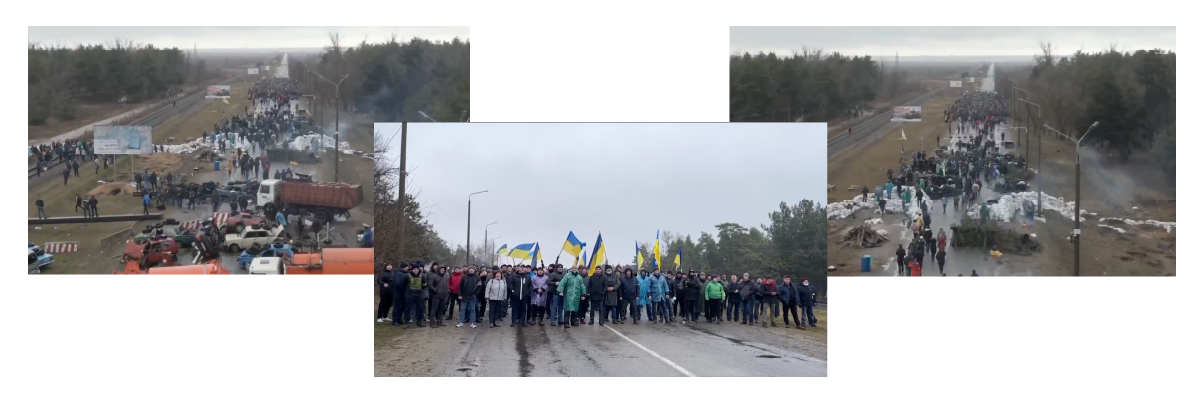"We have been kidnapped from our own country": a story about occupied Enerhodar

In 2004, the European media began to discover Ukraine, watching the Orange Revolution. But this was not the only reason why Ukraine was in the headlines. An explosion occurred at an artillery depot in the Zaporizhzhia region, resulting in shells detonating for several days. It was no big deal. However, the problem was located 40 kilometres from Zaporizhzhia NPP.
Eighteen years later, explosions near ZNPP are heard again. The shells explode close to the reactors, causing anger and fear. Over the past ten months, many Ukrainians have been accompanied by these emotions. They are well known to the residents of Enerhodar, a satellite city of ZNPP under Russian occupation.
Enerhodar emerged like many other cities during the Soviet era. The organisers of the planned economy decided that it was necessary to build a thermal power plant to provide southern Ukraine with electricity by burning Donetsk coal. In 1976, Zaporizhzhia TPP started operating, and a village of builders and power engineers sprang up around it. Over the next decade, massive construction continued — the Zaporizhzhia NPP was built. After the collapse of the Soviet Union, these enterprises continued to play a leading role in the life of the city.
The presence of Russian influence agents in Enerhodar became obvious in 2014. At that time, some of the Enerhodar residents organized rallies in support of the Revolution of Dignity and lit candles for the dead. They were opposed by the public organisation "Bulava", headed by a local pro-Russian politician. After the revolution's victory, he continued to work at the ZNPP and even joined the local Coordination Council to promote the development of civil society.
Such was the city's life where Maryna (name changed for security reasons) grew up. While studying at Odesa University, she started recording comedy videos on YouTube. Thanks to them, she gathered a large audience on social networks. Later she left the project, moved to Lviv and started studying design. Eventually, she returned to her home-town Enerhodar.

The beginning
On February 24, Maryna was at home in Enerhodar. Her grandmother woke her up and said: "There is a war". Maryna did not believe it because her grandmother tended to exaggerate what she saw in the news. "And then I opened the phone, saw a bunch of messages from my friends and realised that it was not my grandmother's exaggeration, but a war," the girl says.
On the first day of the full-scale invasion, Maryna tried to understand the new reality. First, she spent a long time on the phone talking with her friends and relatives. Later, she walked around the city. The girl does not remember if there were explosions then, but she recalls that the townspeople were scared. Imagine living near the largest nuclear power plant in Europe during the war. "I knew they would come here because they were going to Melitopol and Kherson, and we were right between them," Maryna explains.
At the same time, there was hope. "I hoped that we would hold them back. We were all waiting and ready to leave so the Russians would see they were not welcome there," she recalls.
In the end, it happened. On February 27, civilians from Enerhodar began to build a checkpoint at the entrance to the city. Every day more and more people arrived. Maryna was among them. "On the first day, no one gathered anyone; we just took the flag and went through the forest to the checkpoint. Then everyone was coordinated by the mayor: some buses gathered people around the city and took them to the checkpoint," says Maryna. The road was blocked with trucks, tire barricades and sandbags.
On February 28, a column of Russian equipment approached the city, but Enerhodar residents stopped them. Russians did not dare to open fire on civilians immediately. The same situation repeated on March 1 and 2. Maryna recalls that half of the city came to the checkpoint then. "I have never seen anything on a larger scale in Enerhodar," she says.
The Russians could not imagine that the civilian resistance would be so considerable. So for the fourth time, they moved into the city in the afternoon. They hoped that fewer people would reach the checkpoint. Maryna was just preparing to leave the house because the mayor Dmytro Orlov urged everyone to go to the checkpoint. However, for the first time in her memory, there was an explosion in the city. Russians were shelling the checkpoint. The girl stayed at home.

"We sat in the corridor for several hours until the sirens were turned off. Then, on the night of the same day, they fired at the nuclear station. It was the most terrible night," Maryna says. The Russian military hit the first power unit of the plant, causing a fire on the territory.
On March 4, the Russians occupied Enerhodar. A part of the National Guard, which usually guards the ZNPP, and fighters of the territorial defence could not hold back regular Russian troops with heavy equipment. The Russians captured them; at the end of November, after nine months in captivity, several National Guardsmen were released.
The Russians forced Orlov to record a video in which he says they fired blanks. The day before, he reported at least two wounded civilians and urged citizens to record the damage.
Temporary occupation
However, even under the temporary occupation, Enerhodar residents did not give up and continued to hold rallies. "We gathered near the city hall and demanded to return the deputy mayor from captivity; unfortunately, nothing is known about him yet," Maryna recalls. It is about Ivan Samoydiuk, who Russians abducted on March 20. As of early December, the deputy mayor is still in captivity.
A local pro-Russian political headed the temporary occupation administration. The same one opposed the Revolution of Dignity. However, after its victory, he did not disappear from the city's life: in the local elections of 2020, he received the mandate of a deputy of the city council. On February 18, rumours spread in the city that he had agreed with the Russians on cooperation. And after the occupation of Enerhodar, this person began to call himself the "people's mayor".
"Nobody understood why he was the people's mayor because he decided on his own that he was now the mayor," Maryna says, "and it started: "we came to free you. Rasia is here forever; you don't need to be afraid of us; you need to be friends with us; we are brothers". They took down all our flags and hung theirs".

In addition, the Russians launched propaganda newspapers and Telegram channels to discredit Ukraine and promote their narratives. Maryna countered them. She had never been involved in political or social activities before but became a citizen journalist during the temporary occupation. She told her hundred thousand audience on Instagram what was happening in the occupied city.
When the Russians saw that Enerhodar residents continued to show disobedience, they intensified repressions. On April 2, city residents were preparing to go to a rally near the Rovesnik House of Culture.
"People came out with children, holding flags, posters with inscriptions that Enerhodar is Ukraine," Maryna recalls. The temporary occupation administration was aware of the plans to hold a rally. They stated on their Telegram channel that they would distribute humanitarian aid after the rally.
Many people gathered on the square in front of the House of Culture. They were singing the anthem of Ukraine. Then, Russian soldiers started throwing stun grenades at civilians and opened fire over their heads. The city centre was filled with the whistling of grenades and explosions. Communication was lost in the city. The explosions burned four people.
At the same time, the world became aware of the crimes committed by the Russian military in the Kyiv region. Maryna also learned: "it was scary to go out on the street; God forbid that we might meet them [Russian military - Svidomi]". But, unfortunately, their number was increasing in the city.
On the contrary, there needed to be more food. "Supermarkets closed, and the city had kilometre-long queues for flour, milk, and bread. Later, the so-called "one hundred meters" appeared, where they sold everything found in the basements at three times the price," Maryna recalls.
However, the worst was yet to come. In July, the Russians deployed multiple rocket launchers in the city and began shelling the Nikopol district on the other side of the Dnipro.
"Since then, there have been no calm nights in Enerhodar," the girl says. In addition, the Russians periodically shell the city and ZNPP themselves to blame the Armed Forces of Ukraine. However, Maryna believes such operations "under a false flag" do not make sense. "Of course, everyone in Enerhodar knows who is shooting and from where; everything is heard and seen there," she says.
Evacuation
The girl could not continue to live in the temporarily occupied city under the nightly accompaniment of whistling rockets. She decided to leave.
On July 13, Maryna left the city. At six in the morning, Maryna was already standing before the last checkpoint in Vasylivka, but nothing happened for the next 11 hours. Russians did not let a single car through all day. Then, in the evening, the movement began. The girl managed to pass the checkpoint without difficulties: "they did not demand money; they only checked the documents and looked at the things in the suitcase".
Her family had more problems: they spent several days in line in 35-degree heat. The only consolation: residents brought water and food to those in line. When Marina's family finally reached the checkpoint, the Russians turned over their belongings with more interest than a few days before. "They checked laptops, tablets, phones, even desktop computers. To carry it, you need to take a monitor with you. Then, if the devices are discharged, you go to the room with them, charge them and show them what you have in your gallery and messengers," says Maryna.
Now Maryna is on the territory controlled by Ukraine. As long as Russians are in her hometown, she does not plan to go to Enerhodar. She adds:
But the first thing I will do when our Ukrainian flag is flying over my city again is take a ticket and come back because it is my home


